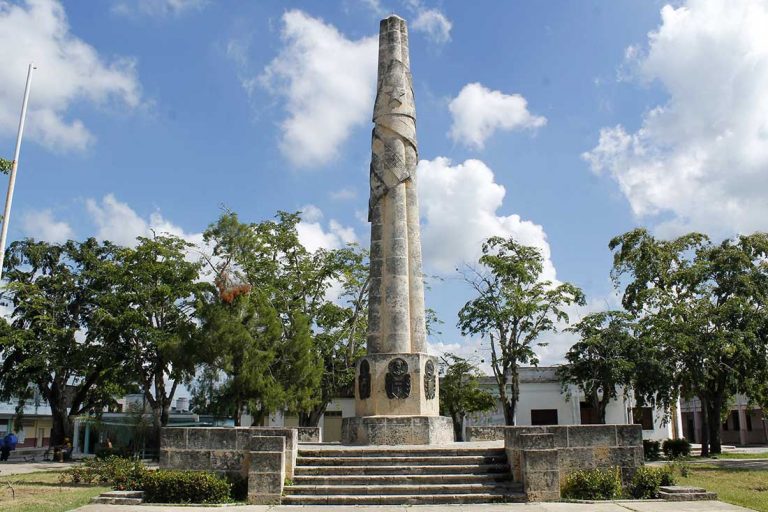According to the classical historians Plutarch and Gaius Suetonius, we know that one by one the barbarian peoples fell, yielding to the superiority of the legions of Rome that led their generals, aspiring to the absolute supremacy of power and ambitioning for preponderant positions in the Republic; or to climb to the coveted positions of emperors, governors, consuls and commanders, which would be won at the cost of fraud and assassinations; or to have other lucrative and privileged positions in order to unleash tyranny with the implantation of the aristocracy.
The people, the plebs, did not count in those projections of ambition other than to enslave them and force them to die in the Colosseum. It was thus that using cruelty without compassion, giving rein to dark political compromises, wars of extermination, the Empire made its way until completing the map of subjugation of peoples to the will of the Empire. Hispania, Gaul and Britain, among other regions, succumbed to the excessive ambition of Rome.
Only a few peoples made stubborn resistance, like the barbarians in Germany, whose warriors in the western forests fought against the Roman onslaught, preferring to set fire to their villages, crops, graves, everything, in order to save dignity, the most important thing. For this reason, before General Julius Caesar, more than eighty thousand brave men perished, in the year 52 BC.
The similarities in history
In Cuba, Guáimaro libre, resembled those ancient peoples, who did not allow themselves to be subjected to the Spanish Empire. It was a loving and noble place, of working and modest people, given to poetry and singing, families getting together to gather and share joys.
Town where the Republic in Arms was born, the office of President of all nationals, the lifetime consecration of the two flags of freedom and the one that would be the National one, where the governmental Chamber that would guide war and peace was approved, and the place from which the general in chief of the Liberation Army would be elected, also the coat of arms of the Republic and the Anthem of Cuba. And the original constitution of the war period that broke out with the lawyer Carlos Manuel de Céspedes at the vanguard of those from Bayamo, that October 10th, 1868, would not be devoid of passion and love; the Magna Carta that would inspire the airs of freedom, equality, justice and rights that were aspired to in such a lively conjuncture of the struggle, – much to ask true patriots -, when still a large part of the island-archipelago did not have absolute sovereignty for being governed by the colonial administration.
This time the people of Guáimaro gave their opinion and free judgment were heard in rallies in the public square, adorned with flags to celebrate the beginning of the “Constituent Convention.”
How fortunate to have been the cradle of the Constituent Assembly! What happiness to see the creature of the Republic being born in Cuba!
Guáimaro was its ancestral name, from when the aborigines populated its territory, a village from when those first settlers resisted, together with those who came from Bayamo, the onslaught of the warrior host led by Pánfilo de Narváez and Diego de Ovando with their fifty horsemen and one hundred infantrymen.
Guáimaro is proud because it has a history and heritage, and his own feelings, and a Creole identity that contributes to the island and Antillean ethnos.
With so much long history and so many births of happiness with the birth of the nation-state, it could not cede those awards and republican throne to Spain. Only the self-immolation of the people-nation could be capable of mutilating and silencing that greatness, never yielding anything to the Spanish Empire represented in the person of Field Marshal Eusebio Puello y Castro, who was coming upon it followed by a strong armed column to desecrate and snatch that glory.
Faced with the threat, —as if it were soldiers of Rome thirsty for glory and power—, it was not necessary to delay between “lobbying and clumsy delays”, and less between tears, the urgent decision: to set everything on fire, except the spirit of the law and the Republic.
The General-in-Chief of the Liberation Army Manuel de Quesada Loynaz told the commander of the Manuel de Torres square to begin preparations for the flames to rise to the sky of Camagüey to astonish Hispanics and to let them know of the great dignity of the Guaimareños , the same as all Cubans fighting for freedom.
That day the people showed signs of fervent patriotism, and went to the mountains, to the Berrocal, to Santa Lucía, and to other farms, without looking back. Behind the wood of the little more than two hundred houses creaked, of which only fragments of bricks would remain to be preserved by their inhabitants as a sacrificial trophy.
At dawn on Monday, May 10th, Marshal Puello at the head of the mounted troops cast his gaze over the smoking ruins of the telegraph station; the church where the lieutenant priest Don Alonso Fruto preached; the billiard house; that of the family of the collaborator José María García in Las Damas street, given by him to the Constituent Assembly; and that of the Ganfaus Palomares, family friends of the Marquis Salvador Cisneros, president of the House of Representatives. Everything was ashes. What a heroic lesson the people gave to the tyrant! Like the much longed-for province of Cayo Julio César in Hispania, Guáimaro could not be outraged by the honor of the Spanish Marshal! With that show of courage of the Guaimareños, it can be assumed that Rome would not have succeeded either!
That people of yesterday and today are Spartan, they are worthy of Cuba as worthy was their resolution of the burning of their small homeland before allowing themselves to be humiliated by the enemy.
Translated by: Aileen Álvarez García






